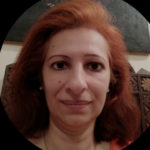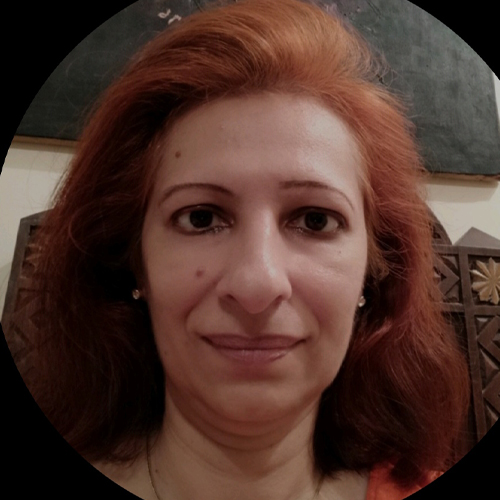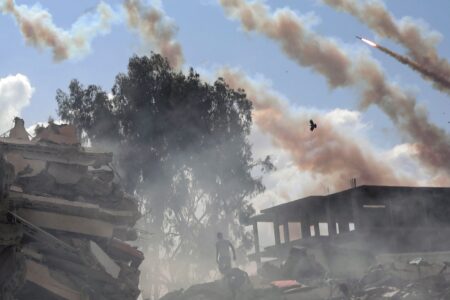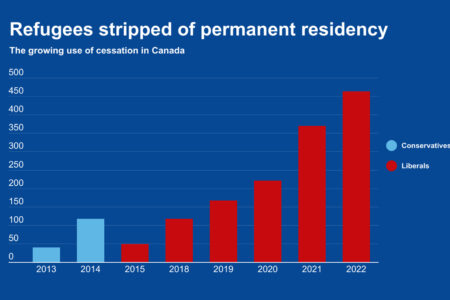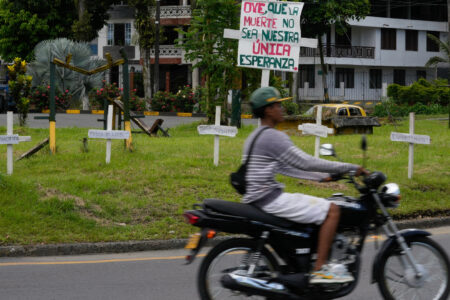
A recent report published by the University of Southern California entitled Refugees and Migration Movements in the Middle East contains 15 chapters about refugees and displaced persons in the region by scholars specializing in the Middle East. The introduction claims, “These scholars represent a new wave of scholars conducting original field research from refugee camps and communities in the Middle East.”
The new wave of scholars is the good part. What’s worrying, though, is that they are mostly Westerners, belonging to Western institutions. And they speak to a topic that is culturally, conceptually and geographically distant from their own world.
The evidence is stark. The Research Papers in Economics (RePEc) database regularly ranks economists according to their publications over the past 10 years. Rankings as of April 2018 show only six scholars in the top 200 belonging to institutions of the developing world (minus China and Taiwan). Searches of publications in Google Scholar from 2010 onwards reveal that among authors writing on “poverty and inequality in Latin America” and “fragile states in Africa,” only one belongs to a Latin American university and one to an African university, respectively. “Governance in developing countries,” thankfully, has two scholars who actually belong to institutions in developing countries as well as coming from those countries.
The truth is that in many developing countries the ability to undertake rigorous evidence-based or intellectual research is, unfortunately, limited. Many institutions in these countries do not even have regular access to the Internet. The Harvard Kennedy School’s database of policy think tanks lists only 58 in Africa, 49 in Central and South America and 49 in South and Central Asia. By comparison, it lists almost 300 in the United States alone (possibly not counting several others located within academic institutions). One of these think tanks, the Brookings Institution, estimates that 60 percent of think tanks in Africa are highly vulnerable, with “a serious risk of disappearing, given unstable funding, staff turnover, and brain drain.”
The monopoly of the Western intellectual over the analytical discourse of societies oceans away has created a divide between where researchers are based and where their subjects reside. Even when Western donors invest in increasing research capacity in developing countries, they often end up setting the agenda. The result is that the developing world is perceived almost exclusively through the eyes of the West.
This divide between North and South is itself based on historical inaccuracies, as Professor Khoti Kamanga from the University of Dar es Salaam in Tanzania pointed out. A leading authority in and on the African Great Lakes region, he was one of the few non-White scholars attending an academic conference on refugees and forced migration studies in Ottawa in May, 2018. The terms North and South were coined after the Cold War to define economic inequality across the globe. In fact, Kamanga said, they are now being used to define geography instead.
Most issues in developing countries, or the “global South,” are perceived by Western researchers in terms of geographical location or region, rather than as the complex effects of global inequality, even though inequality exists in the “global North” as well. Scholarship on countering violent extremism, known as CVE, is a case in point. Books on extremism and radicalization (apart from those exploring the recent interest in homegrown terrorism in the West) frame the topic as, for example, Jihad and the West: Black Flag over Babylon or The New Arab Wars: Anarchy and Uprising in the Middle East. Viewing this vast and complex landscape across a geographical and regional divide, rather than an economically unequal one, does little justice to the issues.
Disparities in geographical perspective have impacts beyond the world of academic research as well. Western funding agencies typically undertake evaluations to assess their projects in developing countries. These become a key tool of evidence formation that feeds in to research. But instead of being conducted by experts residing in the countries where the projects are being implemented, these evaluations are done by “external consultants” from foreign countries. I have been part of several evaluations in my country of origin where the responsibility for the final product lay with the visiting Western consultant, rather than the “local” evaluator, such as myself.
This points to the lack of a counterfactual or contrary perspective on the results of Western-dominated research. A Western perspective on issues in developing countries cannot always take into account the cultural and social nuances of the subjects. Research emanating from the current refugee crisis in the Mediterranean, for example, mostly focuses on the impact of the crisis on receiving countries in Europe. No adequate research is available on how the exodus is impacting countries of origin.
Research allows for and indeed must reflect multiple perspectives. The question then isn’t how to stop the West from producing research on developing countries. Instead, we should be asking how research on issues in developing countries can actually be led by people in those countries.
To start with, more emphasis needs to be given by Western countries to the work of practitioners and scholars in the developing world, however scant it may be. Instead of sending researchers from the developed world to the other side, the West must invest to enable researchers in the developing world to share their intellect with a wider audience. Academics, writers and intellectuals in the West should draw on this work as a learning experience, rather than creating a separate body of literature altogether that is mostly Western-centric.
Research from developing nations must also reflect and voice the point of view of those who reside there. Although academic and intellectual growth in many developing countries is weak, civil society organizations are active on many continents and producing knowledge through their programming that is specific to their regions. This knowledge itself is robust evidence, in the absence of more formal institutions, that can be used as a primary source by Western academics and authors.
There must come a time when those in less-privileged nations can take charge of their own intellect. That will happen only when the “global North” allows the “global South” the space and the opportunity to do so.
Photo: Shutterstock, by paul prescott.
Do you have something to say about the article you just read? Be part of the Policy Options discussion, and send in your own submission. Here is a link on how to do it. | Souhaitez-vous réagir à cet article ? Joignez-vous aux débats d’Options politiques et soumettez-nous votre texte en suivant ces directives.




